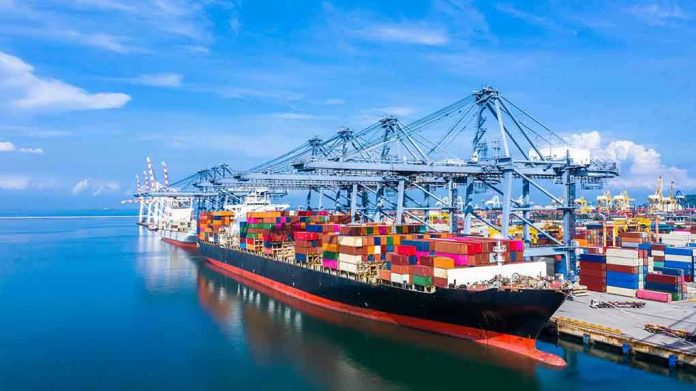
Somali pirates have once again cast a long shadow over the Indian Ocean, reviving fears of a maritime menace that once cost the global economy billions.
Story Overview
- Somali pirates launched a series of attacks, including the armed seizure of a Malta-flagged tanker.
- Renewed piracy marks the first successful commercial ship seizure since May 2024.
- Pirates utilize hijacked fishing vessels as motherships, extending their operational reach.
- International naval forces are responding but security threats remain critical.
Resurgence of Somali Piracy
In early November 2025, Somali pirates executed a series of high-profile attacks in the Indian Ocean, disrupting a period of relative maritime calm. These incidents, including the armed boarding of the Malta-flagged tanker Hellas Aphrodite, have catalyzed urgent warnings to all vessels traversing these waters. The resurgence of piracy emphasizes the sophisticated tactics employed by pirate groups, who now use hijacked fishing vessels as motherships, enabling them to strike far from the Somali coast.
These attacks illustrate the pirates’ increasing boldness and the vulnerabilities in maritime security, exacerbated by regional instability and reduced naval patrols. The pirates’ use of heavy weaponry, such as RPGs and AK-variants, showcases their operational capacity and willingness to engage in violent confrontations. Despite international efforts, including naval responses and private security measures, the threat persists, highlighting the need for coordinated global action to safeguard commercial shipping routes.
Timeline of Events
The renewed piracy wave began on October 26, 2025, when an Iranian dhow was commandeered offshore Garacad, Somalia. This vessel was reportedly repurposed as a mothership for further pirate activities. On November 2, a Seychelles-flagged fishing vessel narrowly escaped capture thanks to warning shots from onboard security. The following day, a Cayman Islands-flagged tanker faced a similar threat, repelling the pirates in a firefight. These skirmishes culminated on November 6, when the Hellas Aphrodite was attacked and boarded, with its crew securing themselves in a citadel until EU naval forces intervened the next day, ensuring their safety.
These incidents underscore the pirates’ strategic use of motherships, extending their reach and enabling them to target vessels hundreds of nautical miles from Somalia. This shift in tactics poses significant challenges for international naval forces, who must now contend with a more mobile and unpredictable adversary.
Urgent warning issued to all ships as Somali pirates target vessel https://t.co/L6VITPPiIX
— Brixham Belle 😜 (@JanetMcwee) November 6, 2025
Maritime Security Challenges
The resurgence of Somali piracy has reignited discussions about maritime security and the effectiveness of current naval patrols. The diversion of naval resources to address Houthi activities in the Red Sea has created security gaps, allowing pirates to exploit these vulnerabilities. This situation is further complicated by the economic desperation of Somali coastal communities, who often find themselves caught between pirates and security forces.
The international maritime community faces increased risks, with potential economic repercussions including heightened insurance premiums and disrupted shipping schedules. The long-term implications could see a sustained resurgence of piracy if security gaps persist, eroding confidence in maritime safety and necessitating a recalibration of naval strategies and resource allocation.
International Response and Future Outlook
In response to the pirate attacks, international naval forces, including EU Operation Atalanta and UK Maritime Trade Operations, have heightened patrols and issued urgent advisories to vessels in the region. While the immediate threat to the Hellas Aphrodite has been neutralized, the pirate group remains active, and further incidents are likely if not addressed comprehensively.
Efforts to combat piracy must extend beyond naval deployments to include improved governance and economic development within Somalia. Addressing the root causes of piracy, such as poverty and lack of enforcement, is crucial for long-term stability. The international community must also consider the broader geopolitical implications, as continued instability in the region could have far-reaching effects on global trade and security.







